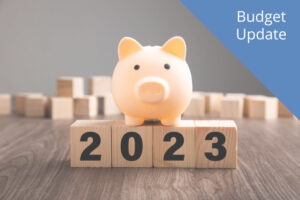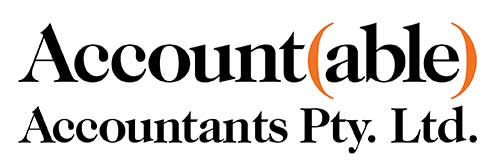FEDERAL & STATE BUDGET UPDATES FOR BUSINESS

FEDERAL BUDGET
1. No Extension to the Temporary Full Expensing
Unfortunately, the Temporary Full Expensing Scheme will not be extended beyond its current deadline of June 30, 2023.
The scheme was initially introduced to help small businesses recover from the effects of the pandemic and allowed you to immediately deduct the full cost of eligible depreciable assets, which could help reduce your tax bill and provide a cash flow boost for your business.
As long as you purchase and first use (or install) the asset before June 30, 2023, you can still benefit from a full immediate deduction.
All in all, you must ensure that your eligible asset investments are made before the scheme’s end date.
2. Superannuation
– Superannuation Rates for Assets
Beyond the tax incentives for small businesses, the government also made changes to the tax rates for those who use their super funds (and SMSFs) to invest in property and other assets.
– High Super Balances Attract Higher Tax Rates
In the Australian Federal Budget 2023–24, the government amended the superannuation system aimed at improving retirement outcomes for Australians. One of the major changes is the introduction of a higher tax rate for high super balances.
From July 1, 2025, if you have more than $3 million in your super fund, you’ll have to pay more taxes. The tax rate will be 30% of any earnings, which is 15% more than the current tax rate of 15%.
However, the change only applies to higher super balances. So, if you have less than $3 million in your fund, you’ll keep paying the lower tax rate of 15%.
3. Instant Asset Write-Off
– Unlimited Instant Asset Write-Off to finish by 30 June 2023
– $20,000 Instant Asset Write-Off to start on 1July 2023
The unlimited Instant Asset Write-Off will cease on 30 June 2023 and will be replaced by $20,000 from 1 July 2023.
Small businesses, with aggregated turnover of less than $10 million, will be able to immediately deduct the full cost of eligible assets costing less than $20,000 that are first used or installed ready for use between 1 July 2023 and 30 June 2024.
The $20,000 threshold will apply on a per asset basis, so small businesses can instantly write off multiple assets.
Assets valued at $20,000 or more (which cannot be immediately deducted) can continue to be placed into the small business simplified depreciation pool and depreciated at 15% in the first income year and 30% each income year after that.
It’s worth speaking with a Tax Accountant before you purchase any equipment. They can advise if it’s better to write the asset off instantly or to depreciate over time.
STATE BUDGET
1. Covid Debt Levy – Payroll Tax
The following payroll tax changes have been announced:
- As part of its COVID Debt Repayment Plan, from 1 July 2023, a levy on payroll will apply to businesses with annual Australia-wide taxable wages above $10m
Those businesses with annual Australia-wide taxable wages over $10m will pay a surcharge of 0.5% on their Victorian wages, to the extent they exceed the relevant threshold. For example, a business with an annual payroll of $12m, that employs wholly in Victoria, will be subject to a surcharge of $10,000. Those businesses with annual Australia-wide taxable wages above $100m will be subject to a further surcharge of 0.5% on their Victorian wages to the extent they exceed this higher threshold. Thus, a business with a payroll of $120m, that employs wholly in Victoria, should expect a total surcharge of $650,000.
- From 1 July 2024, the payroll tax-free threshold will increase from $700 000 to $900 000, and subsequently increase to $1m from 1 July 2025
To ease the payroll tax on smaller businesses, the tax-free threshold will increase from $700,000 to $900,000 from 1 July 2024. The threshold will be increased further to $1m from 1 July 2025.
This is a welcome change for eligible businesses but it will only benefit businesses with relatively small payrolls. The Victorian Government estimates that around 6,000 businesses, who otherwise would have paid payroll tax, will no longer be subject to the tax when the threshold reaches $1m. Furthermore, it is expected that more than 26,000 small businesses will benefit from the increase of the tax-free threshold to $1m.
2. Land Tax – Property Investors
From January 2024, Victorians who currently pay land tax will be hit with an additional annual fee of $500 for landholdings worth between $50,000 and $100,000 and $975 for land worth between $100,000 and $300,000. For land worth more than $300,000, the $975 fee plus an additional hike of 0.1% will be charged. Family homes will remain exempt from land tax.
860,000 Victorian landowners will be affected, who will pay an average of $1,300 in additional taxes. He justified the hike by pointing to the land values increasing by 84% in the past decade. Rents have also increased by 25% over five years.
